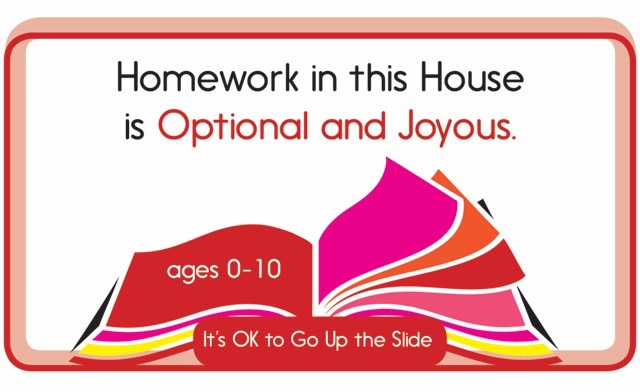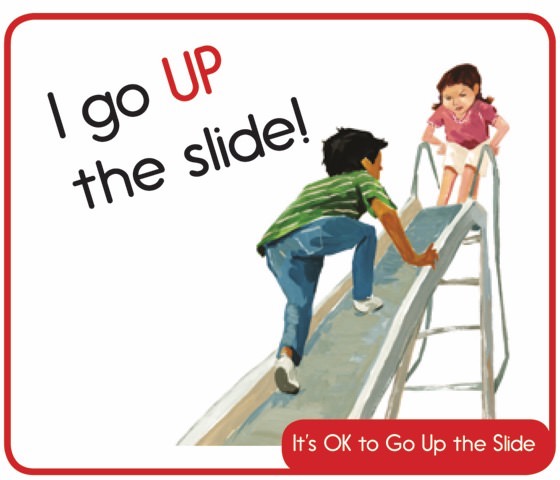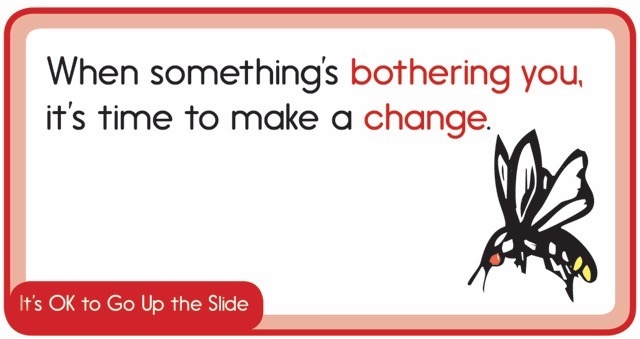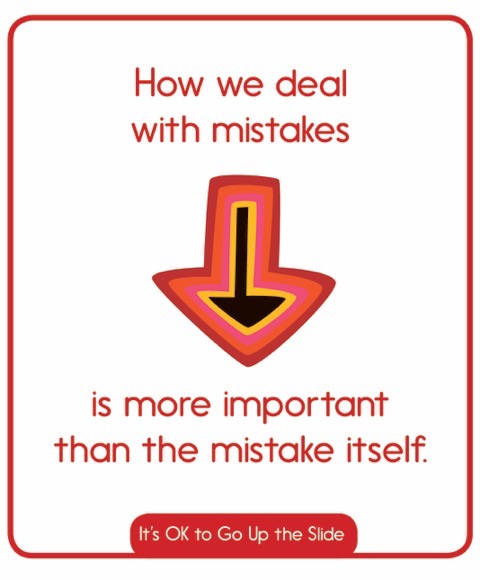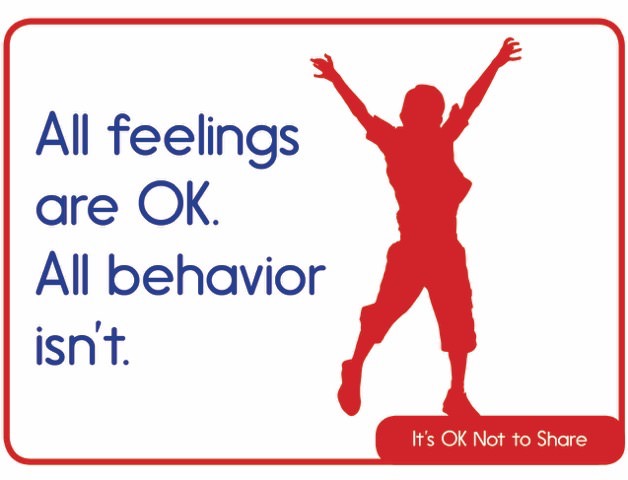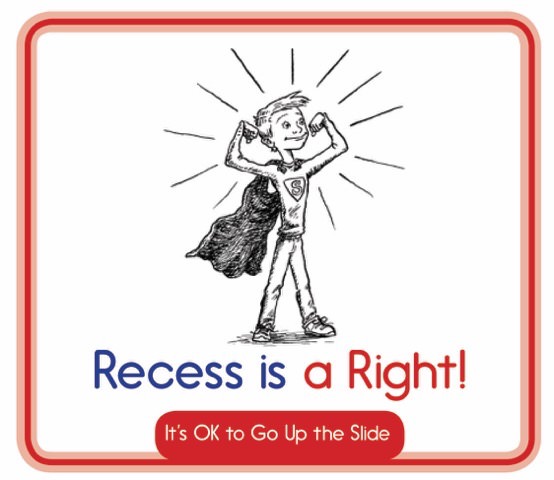
Books are like extra parents. Welcome reading aloud - at any age.
I don't think I could parent without reading bedtime stories.
I've always read to my kids, despite my oldest child who announced at a very young age: "You don't need to read to me anymore. I can read by myself now." That would mean skipping out on one of the main joys and learning experiences of life.
I come from a long line of bedtime-story readers. My mother continued to read to us through high school, and my parents still read aloud to each other today.
Besides all the cozy joy and good stuff in books, reading aloud helps me parent.
Books explore bullying and bravery. Moral choices and tough situations. What it feels like to be somebody else. If a child is behaving like Eustace Scrubb in the Voyage of the Dawn Treader, we can call it out. "That sounds like something Eustace would say." No more needs to be said. No one wants to be like Eustace.
Reading helps children enlarge their world. Raising two white American males, this is particularly important in our family. Kids need to know what it feels like - on the inside - to be a boy, a girl, from this country or another one, to have a home or not, and meet true-to-life characters from a variety of race, class and religious traditions. Stories have a unique way of getting inside your soul.
We often get to know characters in a book better than we may know most people in real life. That empathy extends into the real world from the book world.
As kids get older, the books we choose to read together may be different than the ones they gravitate to on their own. Part of reading together is to introduce kids to new ideas, to genres they might not try, to stories I can tell they need to hear, to humanize the history they get in school. We also tackle older, classic books together, where the language might be dated, and where social ideas certainly are. Sometimes it means just choosing a silly book so we get to laugh together each night.
Kids need parents. Parents need back-up. Reading books together gives you hundreds of extra parents who can help you out on the job.
If you find you don't have time to read every night, try it for a week. Then stop and take a break and pick it back up again. Or change the time of day that works for you. Or try audio books in the car.
Or you might try this method - reading aloud to your kids while they wash the dishes.
What age would you like to read aloud to your kids? Did your parents read to you past elementary school?
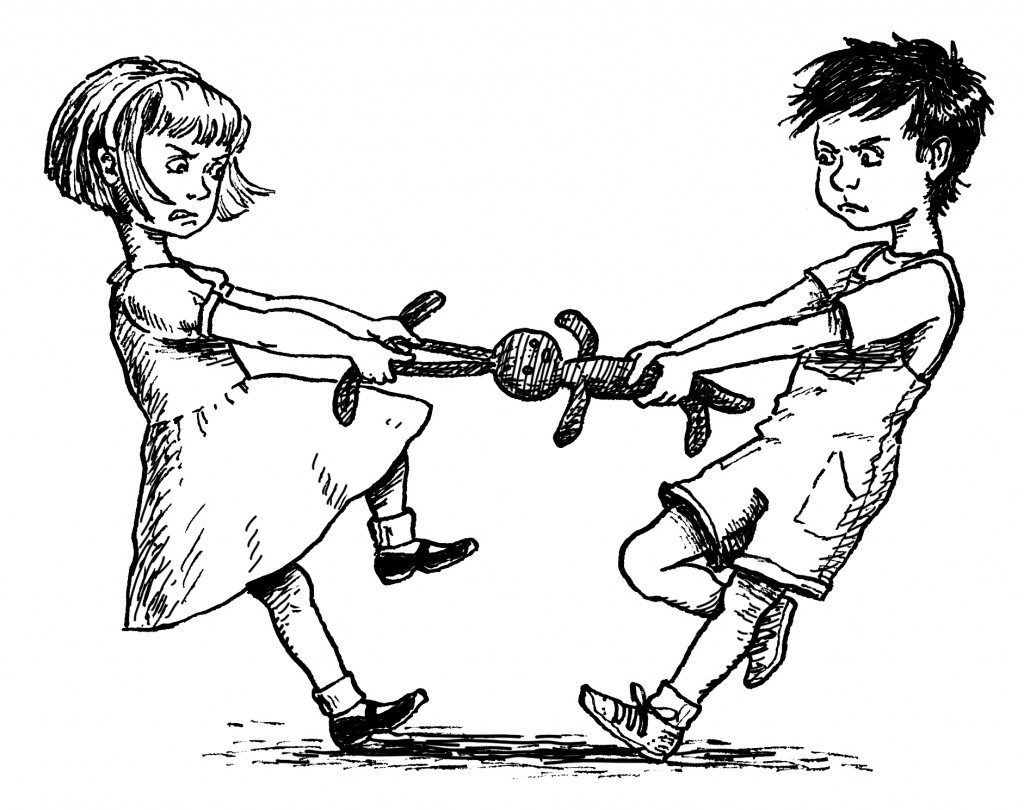
Sharing squabbles? Teach your child impulse control and positive assertiveness.
Sharing is about generosity, kindness, respect and awareness of others. All good things -- but we strive so hard to promote sharing, that our efforts to promote kindness and generosity typically backfire when we try to teach young kids.
What elements need to be in place before YOU'RE ready to share as an adult? Give a quick brainstorm. Likely these will pop up:
- Trust
- Whether the object is valuable (your car)
- Whether the object is personal (your lipstick)
- Whether you're done using it (a book)
- Whether you think it will come back in good condition
- If the object is brand new (a present)
- If you know the person
- If the person seems pleasant, polite and/or grateful
- If you're in a good mood
The list differs for kids: what's personal for a child may be a Blankie or favorite teddy. What's valuable could be a stick (never seen such a cool stick in that shape before). Their good mood might depend on whether or not they've had a nap. Whatever the situation, children learn to be kind and generous if they're not forced into it.
True generosity comes from the inside.
At this season of giving, sharing and thinking of others, here's a re-post of this blog's MOST READ story about the wonders of "renegade sharing." Here it is, already shared with more than a quarter million readers:
Throw Away your Timer: Why Kids Learn More when they Don't Share
As soon as children are old enough to walk, we expect them to share. I prefer putting "share" in quotes, since this type of sharing is usually forced by the adult. Our goals are noble: kindness, generosity, awareness of others. Unfortunately, our approach backfires.
Kids learn more life skills --and develop better generosity--when they aren't forced to share.
Of course, sharing squabbles happen all the time between kids. Here’s a typical scene: One child is busily engaged with a toy when a new child comes up and wants it. A nearby adult says: “Be nice and share your toys,” or “Give Ella the pony. You’ve had it a long time.” What happens? The child is forced to give something up and her play gets interrupted. She learns that sharing feels bad. It’s the parent who’s sharing here, not the child.
Traditional sharing expects kids to give up something the instant someone else demands. Yet we don’t do this ourselves. Imagine being on your cell phone when somebody suddenly comes up and asks for your phone or takes it from you. “I need to make a phone call,” he says. Would you get mad? As adults, we expect people to wait their turn. We might gladly lend our phone to a friend or even a stranger, but we want them to wait until we’re done. The same should apply to kids: let the child keep a toy until she’s “all done.” It’s turn-taking. It’s sharing. But the key is it’s child-directed turn-taking.
Positive assertiveness
Here’s what it looks like in real life. Instead of YOU saying “Five more minutes, then it’s Ella’s turn” or "I'm going to set the timer," teach your child to say “You can have it when I’m done.” This teaches positive assertiveness. It helps kids stand up for themselves and learn to set boundaries on other kids. What a terrific life skill. How many of us as adults have trouble saying “no?”
True Generosity and Awareness of Others
When the first child drops the toy and moves on, remind her that Ella’s waiting for a turn (a great lesson in courtesy and awareness of others). The best part of all is when the first child willingly hands over the toy—it’s a joyous moment for both kids. That’s the moment when your child experiences the rush of good feelings that comes from being kind to others. It’s true generosity. It’s a warm feeling. One she’ll want to repeat over and over – whether a parent is watching or not.
Emotional Impulse Control
What about the waiting child? Waiting is hard, especially for impulsive 2-6 year olds, but just like assertiveness, waiting is an excellent life skill. It’s OK for the waiting child to feel frustrated, sad or angry for a time. Don’t be afraid of a few foot stompings or tears. Learning to control behavior and express intense feelings appropriately is really the main job of early childhood. Impulse control (waiting for a toy and not grabbing) is a vital part of brain development and gets stronger through practice. The more practice kids get, the better. Sharing through turn-taking provides excellent practice.
Life is much more relaxing when you stop playing referee. Throw away your timer. Kids pick up the new method quickly, because it's fair and simple. Let kids keep a toy until they are "all done."
Words you can say
Positive assertiveness
- You can play with it until you’re all done.
- Are you finished with your turn? Max says he’s not done yet.
- Did you like it when he grabbed your truck? Tell him to stop!
- Say: “I’m not done. You can have it when I’m done.”
- She can have a turn. When she’s all done, you can have a turn.
- I see Bella still has the pony. She’s still using it.
- You’ll have to wait. I can’t let you take it out of her hands.
Waiting and awareness of others
- Oh, it’s so hard to wait!
- You’re so mad. You really want to play with the pony right now!
- You can be mad, but I can’t let you take the toy.
- Will you tell Max when you’re all done?
- I see you’re not using the truck any more. Go find Ben. Remember, he’s waiting for a turn.
Curious to learn more? Watch for future posts on taking loooong turns, hogging toys, waiting lists and making the transition to turn-taking.
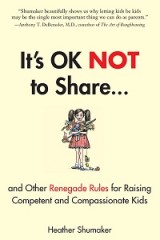
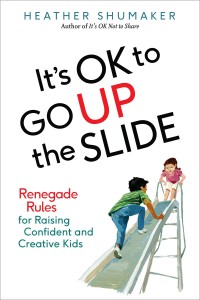 Check out a free sample chapter from the book It's OK Not to Share...and other Renegade Rules.
Check out a free sample chapter from the book It's OK Not to Share...and other Renegade Rules.
Sharing and long turns are just two of the 29 renegade rules. And there's 21 more renegade rules in the sequel It's OK to Go Up the Slide.
Did you ever resent sharing something as a child? Have you tried child-directed sharing?

Speaking up. Saying "no," "stop" and "I don't like that" are powerful skills. So is listening.
Sometimes we forget how sacred "No!" is. Young kids say it a lot, and for many adults that's a word we'd rather not hear so much. But "No" and "Stop" are essential to healthy life, kindness and survival.
I've been thinking a lot about the torrent of sexual harassment and assault stories in the news. How it's finally coming out into the open air. How hard it is to speak up. What happens when people don't.
"No" is a sacred word. We have to teach our kids that, boy or girl. So is "Stop" and "I don't like that." Raising kids means teaching them to speak up. Raising kids means teaching them to listen. Listen and stop the unwanted action.
In my family growing up, we had a code word we used to say when tickle fights, rough housing and other wild play got too much. Our code word wasn't too inventive, it was simply "Stop," but whenever anyone said "Stop," big or small, child or adult, everyone in the room instantly froze and stopped immediately. That taught me to speak up. It taught me to stop and listen when someone else spoke up.
Speaking up and listening are the essentials of human life. These are the skills that solve problems, from family relationships to international emergencies. We need to celebrate these skills in early childhood, model them, respect them, and get used to the discomfort they can produce.
So instead of saying "Be nice" or "Be a good boy" or "Behave" -- vague words of complete obedience and compliance -- teach your children everyday skills of emotional expression and conflict management. These skills are woven throughout my books "It's OK Not to Share" and "It's OK to Go Up the Slide," including:
- It's OK Not to Kiss Grandma - speaking up and setting limits on bodies - even loving grandma hugs
- It's OK to Talk to Strangers - gives your children tools, not fear
- Kids Need Conflict - step-by-step guidance in helping kids speak up and stop behavior they don't like. "Stop! I don't like it when you ____."
- Only Punch Friends - celebrates rough-housing, gives conflict mediation practice, helps kids read body language and words that say "Stop!
Speaking up is hard.
Listening and stopping is hard.
Young kids can do it. And so can we.
We need to encourage these skills, for these are the skills of life. It gets easier with practice.
Are you good at saying no and speaking up? How are you teaching this to kids in your life?

 Need more practice speaking up?
Need more practice speaking up?
Or how to raise kids who can speak up, set limits and face the world with confidence?
Check out It's OK Not to Share and It's OK to Go Up the Slide.

